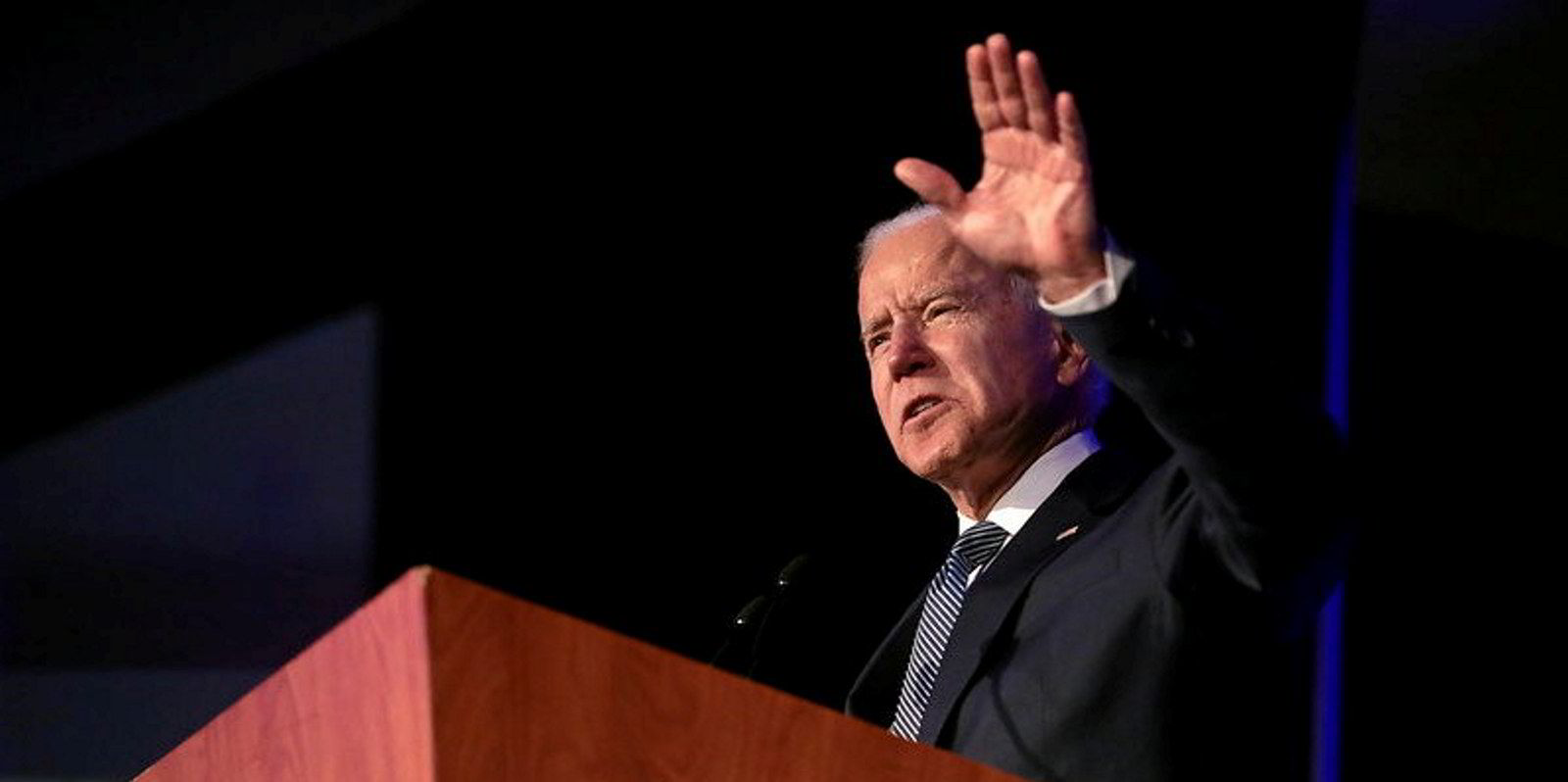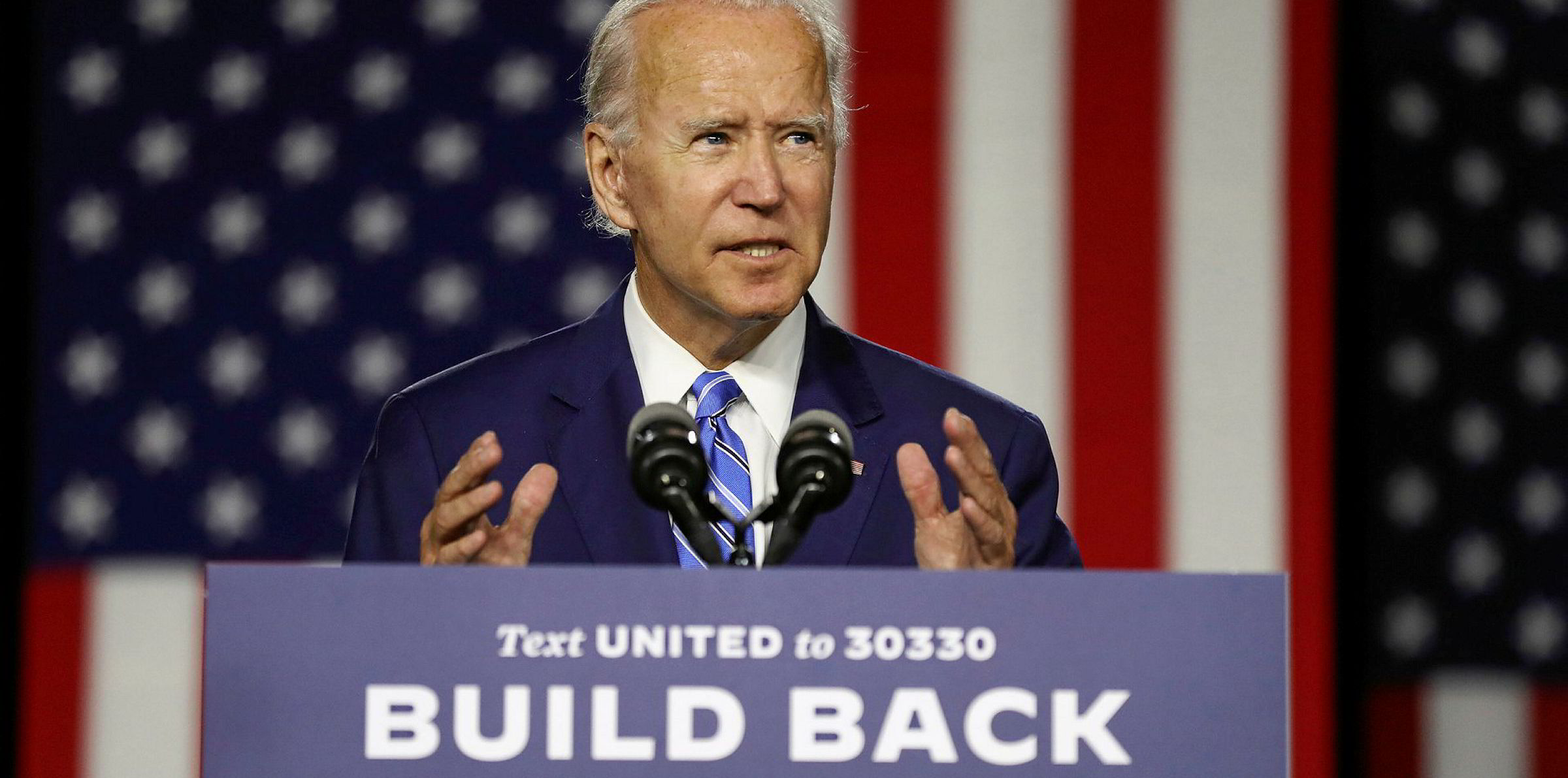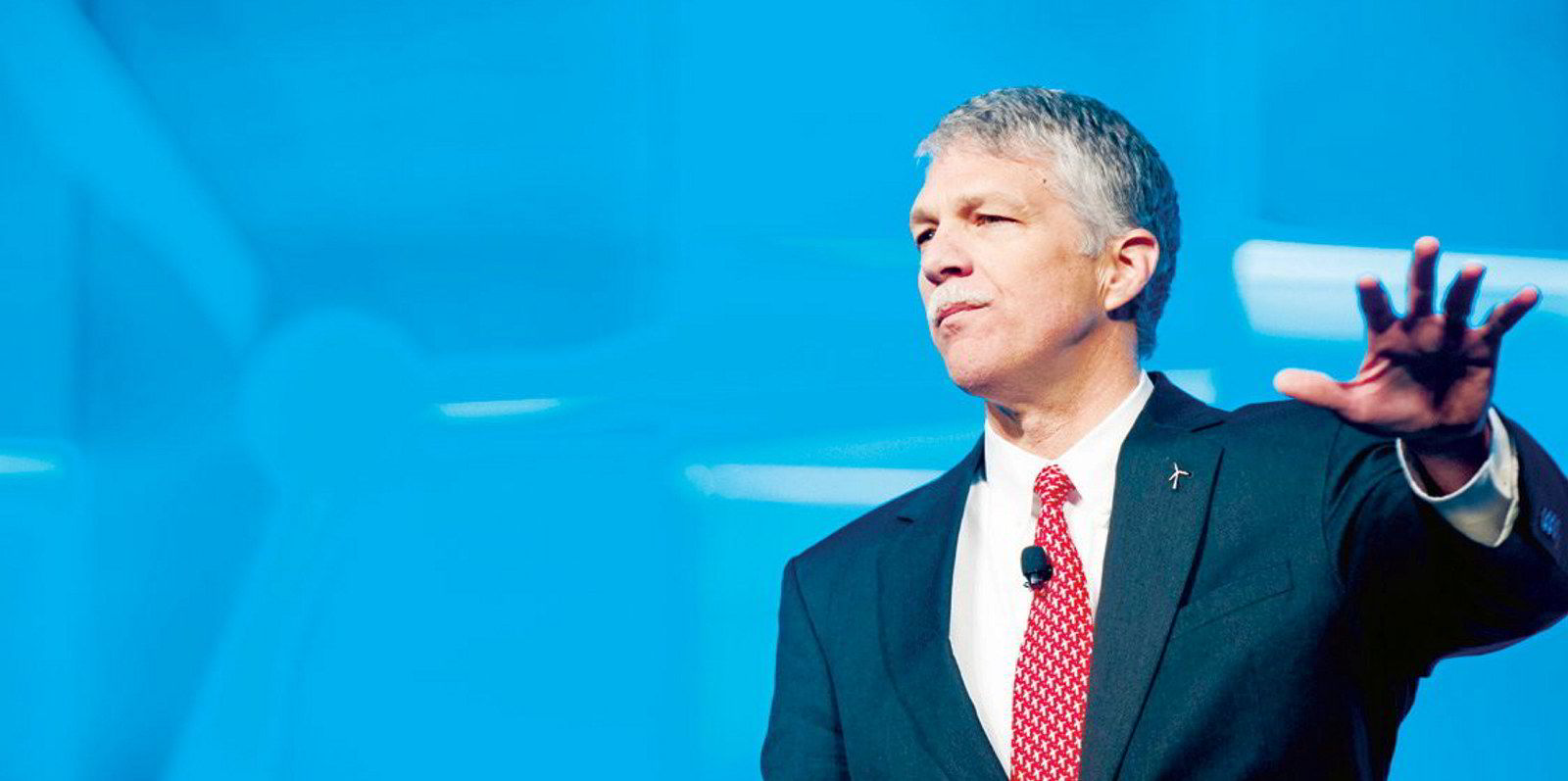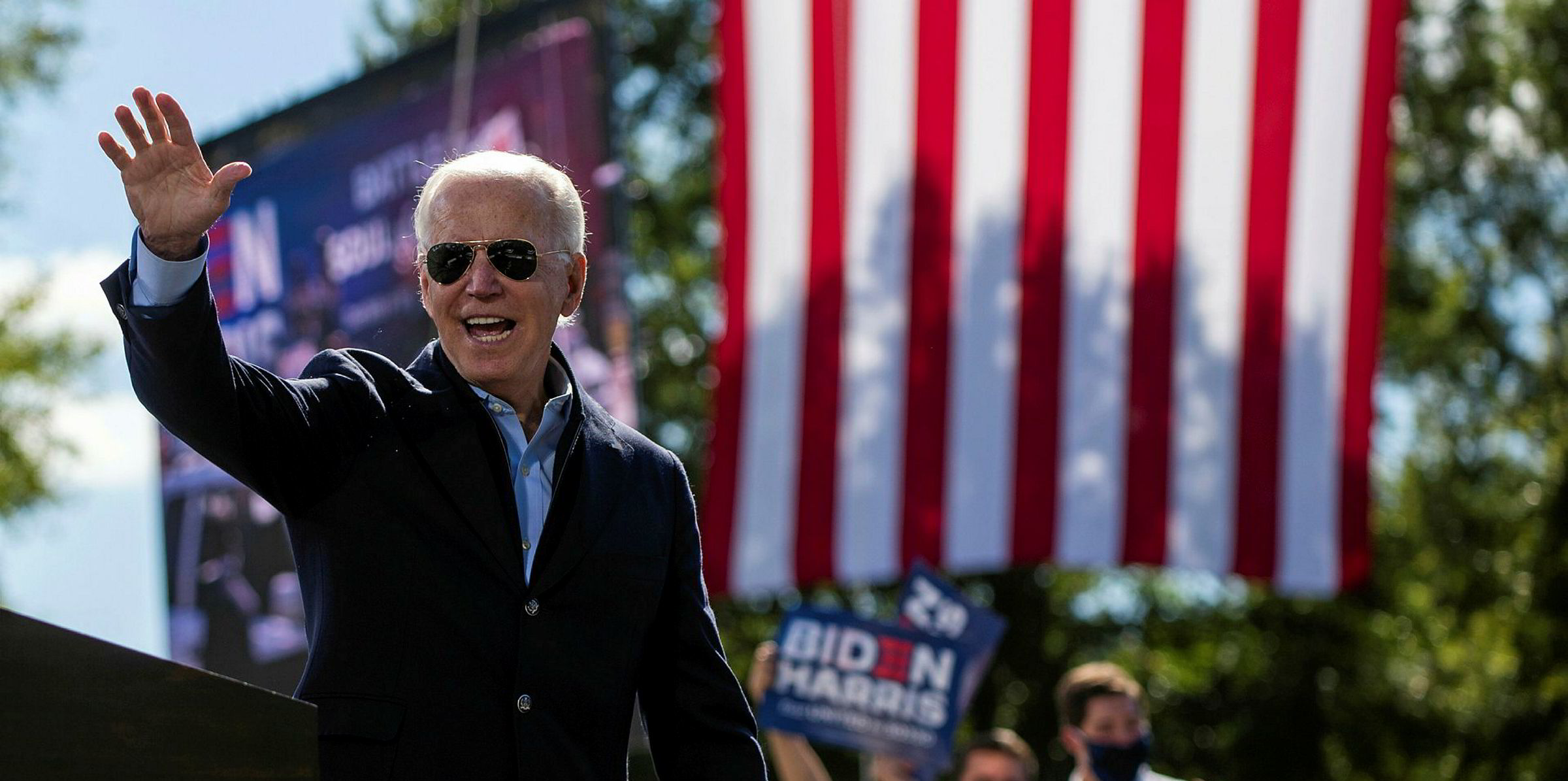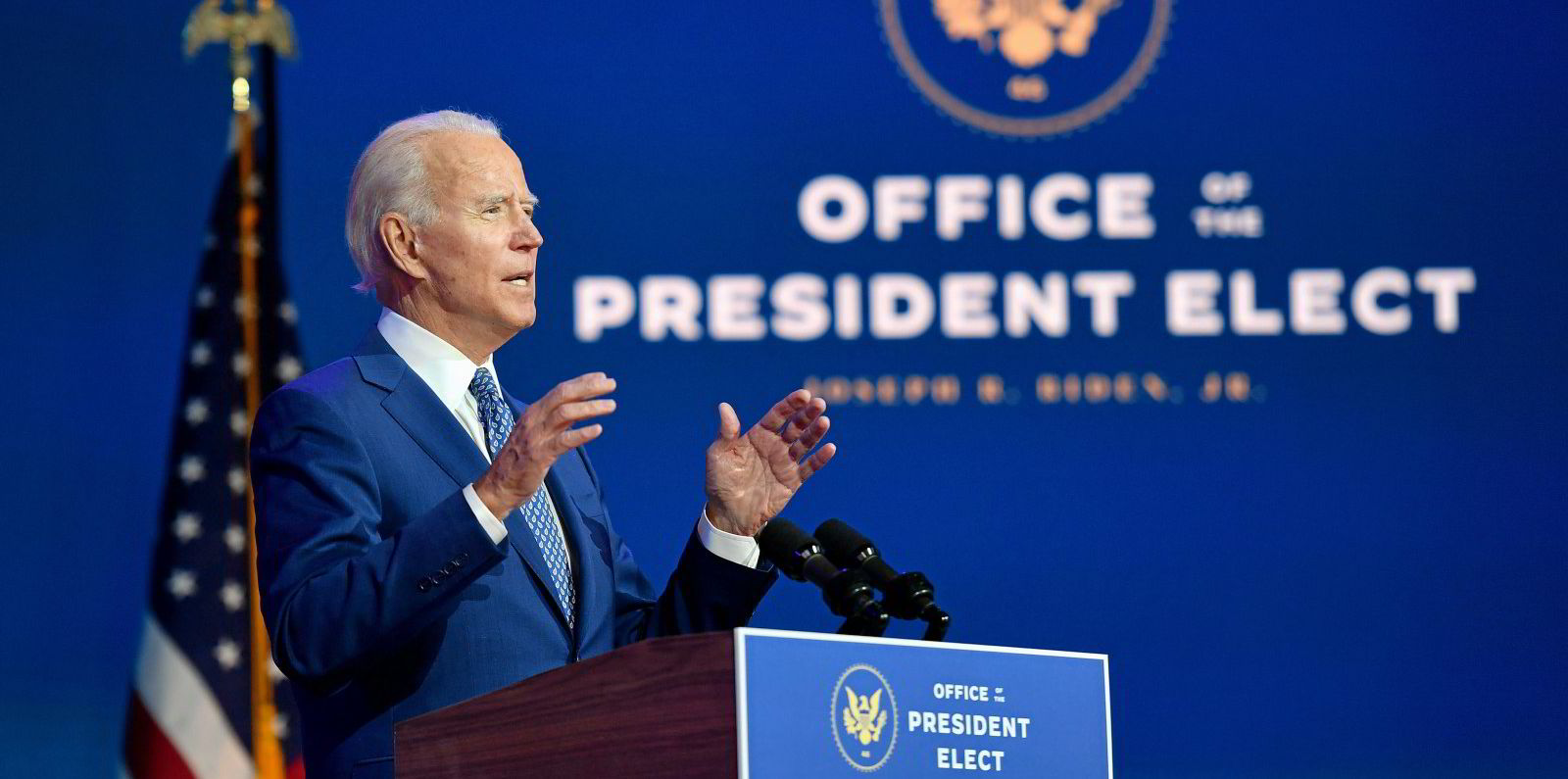US President-elect Joe Biden has said he will nominate Debra Haaland to lead the Department of Interior (DoI), elevating an opponent of fossil fuels – and first Native American to run the powerful government department – to oversee his administration’s ambitious plans for offshore wind and other renewables development on public lands.
Get the market insight you need into the global oil & gas industry's energy transition – from the new newsletter from Upstream and Recharge. Sign up here
Biden also selected North Carolina’s environmental chief Michael Regan to head the Environmental Protection Agency (EPA), a body set to take a spearheading federal role in enacting a climate policy agenda that aims to place the US on course to reach net zero emissions by 2050.
The choices fill out what Biden, who takes office on 20 January to serve a four-year term, said would be an experienced climate team in the executive branch ready to hit the ground running to tackle what he has called he “undeniable, accelerating, punishing reality of climate change”.
Biden's selection of Haaland and Regan drew praise from clean energy and environmental lobbies and some trade groups.
“The [DoI] will be instrumental in accelerating the deployment of renewable power, both onshore and offshore. Together, we can unlock billions of dollars of private sector investment, create tens of thousands of American jobs and tackle the climate crisis,” said Greg Wetstone, CEO of the American Council on Renewable Energy.
He called Regan “a true environmental leader” who will advance EPA’s “critical role to play in mitigating climate change and driving the deployment of pollution-free, renewable power”.
Other officials so far picked by Biden with a climate brief are former Secretary of State John Kerry, who be his administration's climate envoy; former EPA administrator Gina McCarthy to oversee a future White House Office of Domestic Climate Policy; and former Michigan Governor Jennifer Granholm is in line to become secretary of energy.
Haaland, Regan and Granholm will require Senate confirmation. The officials are from the progressive wing of the Democratic Party.
In the election campaign, Biden pledged that his administration would create the necessary economic and regulatory environment along with expanded federal tax incentives to spur the installation of “millions of solar panels and tens of thousands of wind turbines – including thousands of turbines off [US] coasts”.
Much of this new clean, low-cost power from the country’s interior would get to consumers in load centres via “next generation electric grid transmission” some of which will be built on lands under federal management, he said. If confirmed, Haaland, a member of the Laguna Pueblo tribe in the state of New Mexico, will oversee a sprawling agency that manages 20% of all land in the US as well as 1.7bn energy resource-rich acres offshore on the US’ outer continental shelf beyond state territorial limits.
The federal government, mainly in the second half of the 19th century, removed indigenous peoples from present public lands and relocated them on much smaller designated tribal reservations that now comprise about 2% of the country’s surface area.
Ironically, Haaland as DoI secretary would be responsible to Congress for ensuring the department honors its treaties and other federal trust responsibilities with her own and 566 other tribes and Alaska Native villages.
Biden’s plan to accelerate the transition away from global warming fossil fuels would refocus DoI’s priorities on public lands from development and extraction of coal, natural gas, and oil during the last four years under outgoing President Donald Trump.
“Climate change is the challenge of our lifetime, and it’s imperative that we invest in an equitable, renewable energy economy,” Haaland told National Public Radio before her nomination.
Biden, who has pledged to reduce or end oil leasing and end ‘fracking’ on public lands, will look to Haaland to gear up the nation’s commercial offshore wind sector, which has been unable to gain scale because of a slow-rolling DoI permitting process and lack of political support from the Trump administration, with Vineyard Wind, the first large-scale project off the coast of Massachusetts, having suffered multiple regulatory delays over the last three years.
National Ocean Industries Association president Erik Milito said his group was ready to work with the Biden administration to unleash an “offshore wind industry that is already primed and ready to go will help lead our economic recovery and benefit every American in every state”.
At the EPA, Biden will look to Regan to spearhead reversal of the agency’s administrative and regulatory actions that enabled higher greenhouse gas emissions, such as rolling back rules on vehicle emissions standards, methane leakage and gas flaring.
He will also implement Biden’s pledge to make environmental justice a priority at EPA, where Regan worked under both Democratic and Republican administrations earlier this decade.
Regan has served as head of North Carolina’s environmental agency since 2017. He is an air quality specialist whose most widely known case involved a coal ash cleanup in which he negotiated a multi-billion dollar settlement with Duke Energy.
The remains speculation as to whether Biden will try and resurrect the White House Office of Energy and Climate Change Policy created in 2008 by former President Barack Obama through an executive order for that purpose.
After Congress declined funding in 2011, it was eliminated as a standing White House Office and its work was moved under the umbrella of the Domestic Policy Council, the main forum used by a president for considering domestic policies, excluding economic matters.
